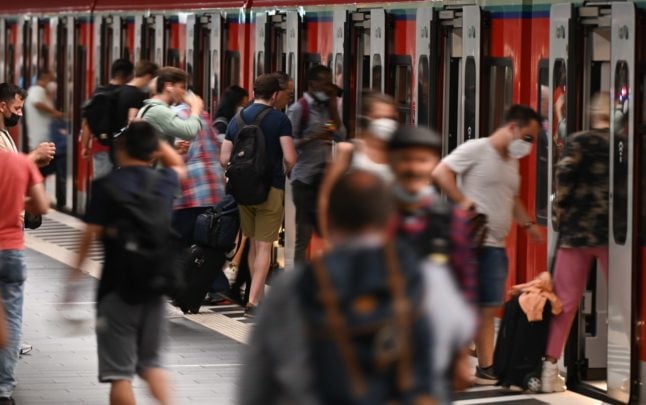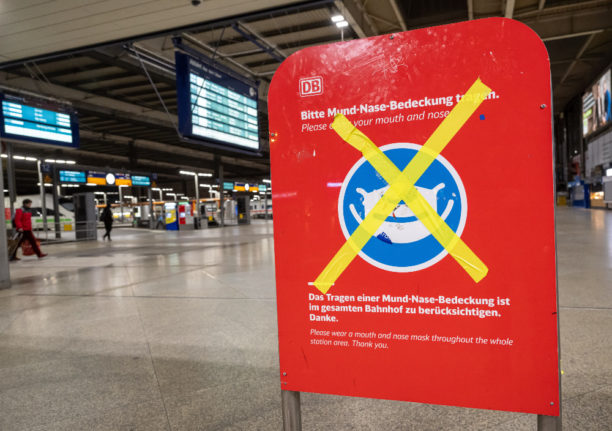People across several German states still have to wear an FFP2 mask on buses, trains, trams and the U-Bahn to protect against the spread of Covid – but that could change soon.
Schleswig-Holstein, Bavaria and Saxony-Anhalt have already ditched the mandatory mask requirement on public transport.
READ ALSO: First German states scrap masks on public transport?
Now it has emerged that the other states want to keep the mask requirement in place in January and at least part of February, according to a survey of the states by RedaktionsNetzwerk Deutschland (RND).
Many state health ministries cited the strained health care system as a reason for keeping masks in place for now. According to Hamburg, mandatory masks in public transport should continue to help prevent Covid infections in the coming weeks.
Mecklenburg-Western Pomerania and North Rhine-Westphalia said in the RND survey that they wanted to keep mandatory masks on public transport at the moment to prevent a further burden on surgeries and clinics.
Thuringia said it plans to get rid of the mask requirement in March – provided the situation doesn’t get worse.
Masks on public transport is one of the only Covid restrictions left in Germany, along with having to isolate with a positive Covid result. However, the rules can differ depending on the state.
READ ALSO: Two German states stop enforcing mandatory Covid-19 isolation
Meanwhile, one of the only Covid measures that have been in place nationwide this winter, is the requirement that passengers on long-distance transport still wear face masks. Under the current law, this will remain in place until April 2023.
Mid-February?
The issue of masks is currently being debated in Berlin and Brandenburg.
According to news agency DPA, the Brandenburg state government has proposed to get rid of the mask requirement on public transport in mid-February – after consultation with Berlin.
“The date should be agreed with as many states as possible, as state premier Dietmar Woidke (SPD) has repeatedly requested,” Brandenburg government spokesman Florian Engels said.
“After preliminary talks with the Senate Chancellery of Berlin, mid-February is preferred.”
The state government is planning to approach the other neighbouring states of Mecklenburg-Western Pomerania, Saxony and Lower Saxony with the proposal, he said.



 Please whitelist us to continue reading.
Please whitelist us to continue reading.
Member comments